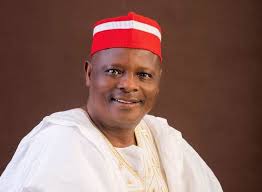2027 Calculations – Ambitions Collide
With Kwankwaso’s expulsion, the NNPP isn’t just cutting ties—it’s scripting a future without its brightest star. The stakes involve survival beyond 2027.
NNPP’s Rebirth Blueprint
No more free tickets, Dr. Major vows, signaling an end to celebrity candidacies. The party prioritizes primaries and financial transparency—a clear departure from Kwankwaso’s trust without financial obligations model. Behind-the-scenes talks with new presidential aspirants have commenced, though identities remain confidential. The party’s core message emphasizes its foundational strength: We birthed Nigeria’s fastest-growing opposition party without Kwankwaso. We’ll do it again.
Kwankwaso’s Perilous Limbo
Expulsion voids his NNPP platform for 2027. Galadima’s claim of staying strategically conflicts with INEC’s inevitable compliance with court orders. APC’s courtship persists, but Kwankwaso recognizes joining the ruling party erodes his anti-establishment brand. His dilemma presents two unappealing options: floating a new party (financially burdensome and slow) or seeking sanctuary in PDP (politically humiliating).
The Tinubu Factor
NNPP’s dismissal of Kwankwaso as lacking pedigree to match Tinubu transcends political trash talk. It strategically signals potential donors to redirect resources toward the NNPP rather than a sinking political venture. This calculated messaging aims to position the party as a viable alternative investment for 2027.
The Ganduje Dimension – APC’s Shadow Role
As NNPP purged Kwankwaso, APC circles exhibited visible satisfaction. Abdullahi Ganduje’s resignation as APC chairman in June 2025 fueled intense speculation about a potential Kwankwaso-APC alignment. NNPP’s response blended sarcasm with tactical positioning: Let APC have him! It’s a relief. National Secretary Oginni Olaposi reframed defections as political liberation: Kwankwaso lost control—his followers are free citizens joining better parties.
Beneath the public mockery lies genuine concern. Should Kwankwaso join APC, he could potentially leverage his Kano stronghold to undermine NNPP Governor Abba Yusuf. The NNPP’s preemptive expulsion serves as strategic warfare—deliberately burning Kwankwaso’s bridge before he can potentially cross into rival territory.
Leadership Reset – NNPP’s Rebirth
The Lagos convention represented more than Kwankwaso’s expulsion—it marked NNPP’s institutional resurrection. Dr. Agbo Major’s election as chairman fulfilled a court-mandated organizational renewal.
Structural Transformation
New executives like Lagos leader Princess Olabisi Adebowale systematically replaced Kwankwaso loyalists. Their mandate emphasizes territorial reclamation: Reclaim states we birthed pre-Kwankwaso. This leadership purge extends beyond personalities to fundamentally restructuring party governance.
Ideological Reformation
Major pledged a philosophical return to constructive criticism over personality cults, consciously distancing NNPP from Kwankwaso’s combative political style. This ideological shift communicates a foundational principle: We’re a party, not one man’s weapon. The reformed NNPP now emphasizes policy-driven engagement over individualistic power maneuvers.
Beyond Kwankwaso – Nigeria’s Political Reformation
The NNPP-Kwankwaso rupture transcends political gossip to reveal systemic truths about Nigerian democracy. For NNPP, survival required sacrificing its star player to reclaim institutional integrity. For Kwankwaso, expulsion presents either career annihilation or unexpected liberation from a constraining structure. For voters, this conflict reinforces a fundamental democratic principle: Parties aren’t personal fiefdoms.
As 2027 approaches, this rupture will test whether institutional frameworks can ultimately supersede individual personalities in Nigeria’s political landscape. The NNPP has decisively chosen its trajectory: No more messiahs, only members. This stance represents both a gamble and a statement of principle in a political culture historically dominated by strong personalities.


